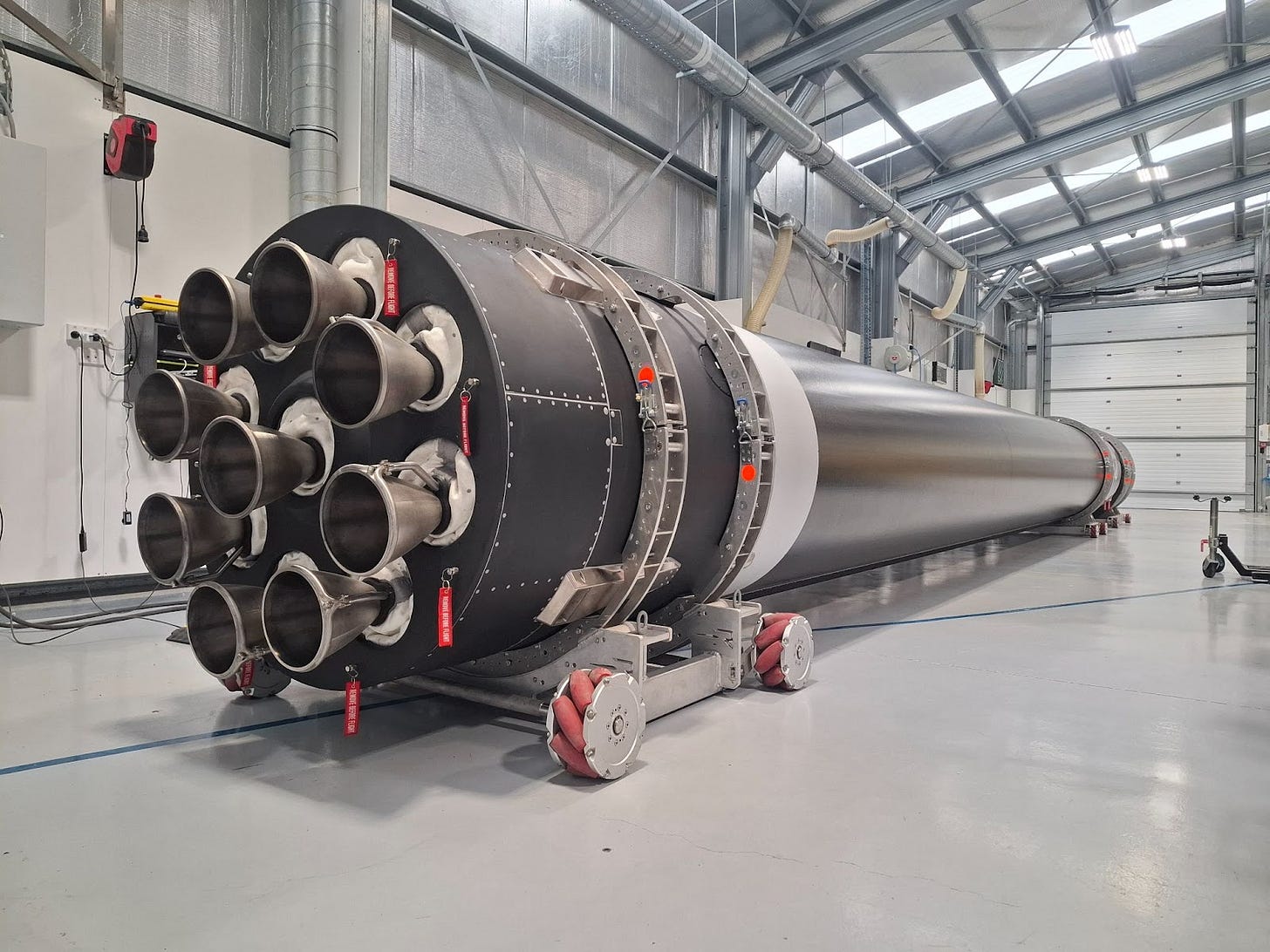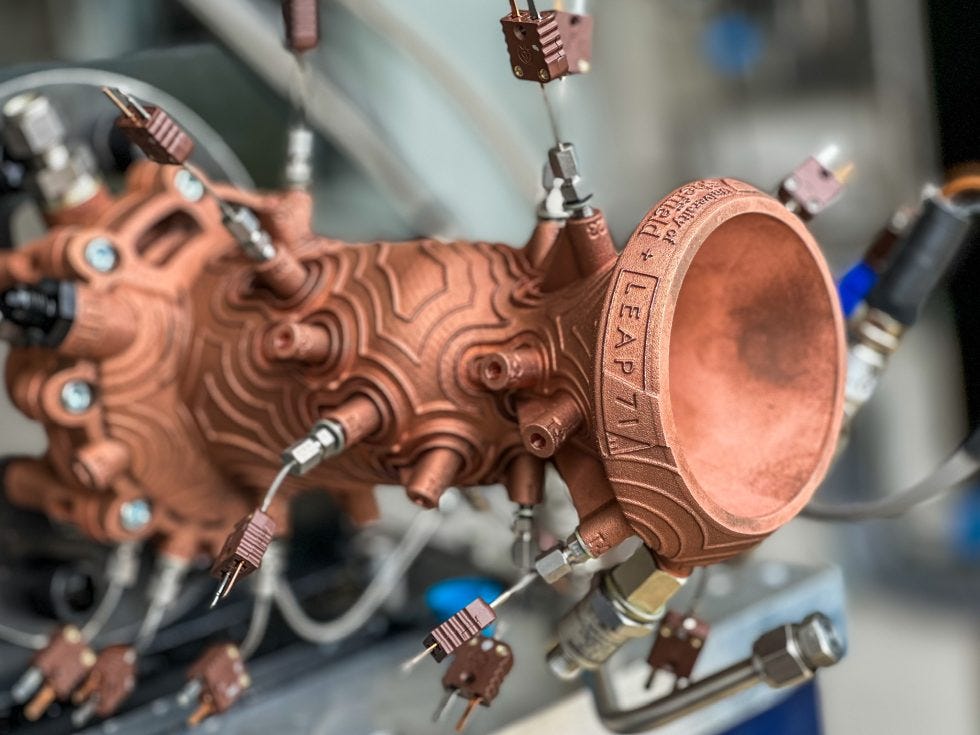Moonshot #29
Rocket Lab continues to crush mission naming among other feats, Vast has its eye on Europe this summer, SpaceX prepares for a fifth Starship launch, and everything else in commercial space.

Rocket Lab – Rocket Lab’s ‘No Time Toulouse’ mission, which launched last Thursday, marked the Electron rocket’s historic 50th flight. The inspiration behind the mission name is Rocket Lab’s French client, Kinéis, an Internet of Things (IoT) operator. Not only was the successful satellite deployment a great way to kick off the rocket company’s contract with Kinéis – under which it will deliver a total of 25 satellites over the course of five launches – but it also makes Rocket Lab the “fastest company to go from one to 50 launches of a privately developed rocket,” according to Ars Technica. That’s a nice accolade to add to the resume, considering that SpaceX almost always takes the crown for speed. But that’s not the only thing propelling Rocket Lab into success this month. Last week, the Peter Beck-led company landed their largest launch contract to date, with Japan’s Synspective, under which the rocket firm will carry out ten launches of synthetic aperture radar (SAR) spacecraft over the next few years. At the same time, the company is ramping up production of its space-grade solar cells, thanks to new federal and state funding. Here’s hoping the firm can stay locked into this impressive upward trajectory.
This edition of Moonshot is brought to you by the Space Resources program at the Colorado School of Mines.
Vast – Long Beach-based Vast signed a memorandum of understanding with the European Space Agency in early June, essentially assigning Vast to study how ESA can use its commercial space stations, specifically its Haven model. The MoU also asks Vast to make best efforts to source materials and contract work from European vendors, in an agency effort to uplift the European space industry. Of course, Vast is happy to support the “European ecosystem,” as the firm’s chief executive puts it, and to “build to their requirements.” And why wouldn’t they? Government contracts can be the most lucrative. Following the memorandum, Vast signed a cargo services agreement with The Exploration Company, for use of their vehicle known as “Nyx,” which is compatible to dock with Vast’s Haven station. This recent agreement refers to a 2028 mission, which will involve the second Haven station.
Albedo – After receiving $35 million in funding at the start of the year, Denver-based Albedo set a launch date for its high resolution imaging satellite, known as Clarity, slated to hit very low Earth orbit (VLEO) next February. One of the company’s customers is – no surprise here – the National Reconnaissance Office, as well as the National Air and Space Intelligence Center. The latter plans to leverage Albedo’s thermal infrared capabilities to obtain nighttime images.

Scout Space – Another in-space observer is Scout Space, a startup based in Virginia with eyes on ABL Space’s Alaskan launchpad. Earlier this month, Scout announced it had signed an agreement with ABL Space for use of its RS1 small-satellite launcher – scheduled to take off later this year – to deploy its “Owlet-01” telescope. As its name suggests, the Owlet is a cuter smaller version of the startup’s Owl telescope, which is in development for eventual geostationary and cislunar orbits. However, both Owls will share the goal of providing space domain awareness, for applications such as space traffic management. As excited as we are for these birds to fly the nest, the Owlet-ABL collaboration will depend on the launch provider’s second RS1 flight attempt, which is set to take off this month. Should ABL experience anomalies like it did on its first attempt, Scout Space might have to consider hitching their hoot of a telescope to a different rocket.
SpaceX – When it’s not getting sued, SpaceX is hightailing Starlink satellites to LEO, completing a total of six Starlink missions so far this month, including two bicoastal launches yesterday. One of those launches also produced the 300th landing of the Falcon booster, the firm’s trusty first-stage. In addition, Starbase, the firm’s Texas launchpad, is preparing for its fifth launch during this wet hot American Starship summer, after an optimistic June demonstration that concluded with the rocket’s first booster retrieval. It’s a good month for the company’s star eponyms, as Starshield recently made a good impression on the Pentagon, who plans to order over 100 of the highly encrypted, militarized satellites for a 2029 constellation. The only thing that could stop a steady stream of success like this one would be, well, a toxic company culture. If only there was something they could do to change that…

LEAP 71 – A Dubai-based AI engineering firm has developed a machine to autonomously design rocket engines, which are then 3D-printed. LEAP 71 demonstrated the technology by producing a liquid oxygen engine, which was designed in two short weeks and boasts 1,124 lbf. A successful hot-fire of the Noyron TKL-5 liquid-fuel engine this month means big things for the company, in addition to the industry at large, as it introduces the potential of faster design and manufacturing turnarounds.
Keep reading with a 7-day free trial
Subscribe to Celestial Citizen to keep reading this post and get 7 days of free access to the full post archives.




